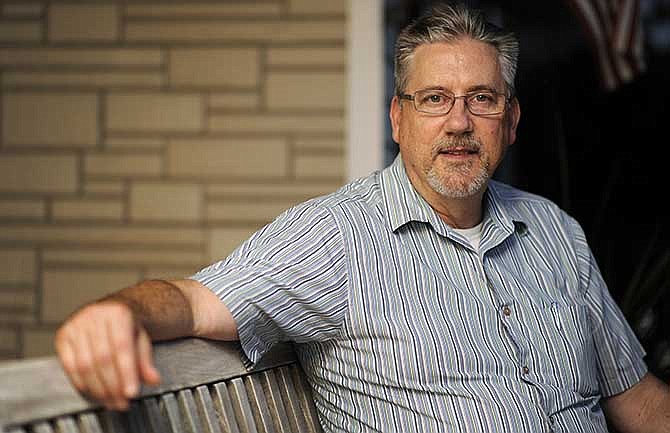Frank Cox is an IT project manager for the state. He is currently working with the Missouri Department of Natural Resources, but he has previously worked with the Department of Corrections and the Department of Labor and Industrial Relations.
"We have few project managers working to support 14 branches of the state government," Cox said. "It varies between departments. There are three that support the Department of Natural Resources from within the Missouri IT division."
The difference between everyday work and work for project managers is a life cycle. Most officials report to their desk and conduct their daily rituals of work and routine, whereas project managers work on a more finite scale, Cox said.
This project life cycle starts with the initial phase where people like Cox develop a charter and identify the project's stakeholders, or who has the most to gain or lose from the project. After that, the planning stage starts. This is where the managers draw up plans for tasks, schedules, budgets and other issues. After planning is execution, when the plans are put in motion, Cox said.
As the project is being executed the project managers preform to different steps concurrently; monitoring and controlling. They have to constantly communicate with their employees to monitor the progression of the project and control variants that could affect the project's schedule or budget.
Finally, when the project is closed, Cox and his team will close the project administratively, or contractually if there are any outside sources providing service.
A large project that he worked on with was the DOC's Institutional Technology Improvement Program.
"In this program, our job was to replace all of the old dumb terminals, or what we called green screens with modern computers, and train users," Cox said.
For this six-year project, Cox had to oversee the upgrade of DOC technology, teach the departments workers how to use the technology, and then connect all the different institutions across the state to each other.
He also helped the DOC administer a fee-collection program for offenders that has allowed the state to eliminate spending on an private company for fee collection, which generated more than $25 million in revenue.
"The cost required to implement the system was recovered in the first year," Cox said. "It goes right back to the department into a set of department business programs that are provided at the institutions that help correct offenders. It is aimed at one big metric that the Department of Corrections reviews every year called recidivism."
Cox grew up in Houston, Texas. He said he was a miserable failure in high school and had to repeat the 11th grade. When he got to his senior year, he dropped out, got a GED and joined the Army. In his 20 years of service, he completed two undergraduate degrees and worked as an infantry paratrooper and then a photojournalist. After his military service, he completed graduate school and earned a master of science in information and communication sciences.
Cox covered Operation Golden Pheasant in Honduras, the invasion of Panama and has interviewed Colin Powell while he was secretary of state and Caspar Weinberger while he was secretary of defense.
"Out of everything I got to cover, it was the people that I liked the most," Cox said.
One of the interviews that he remembered fondly was that of Hattie Brantley, an Army lieutenant was among a group that was known as the Angels of Bataan. Brantley served during World War II and helped provide triage to American and Filipino soldiers and Marines all the while evading Japanese bombing raids in the middle of the jungle.

